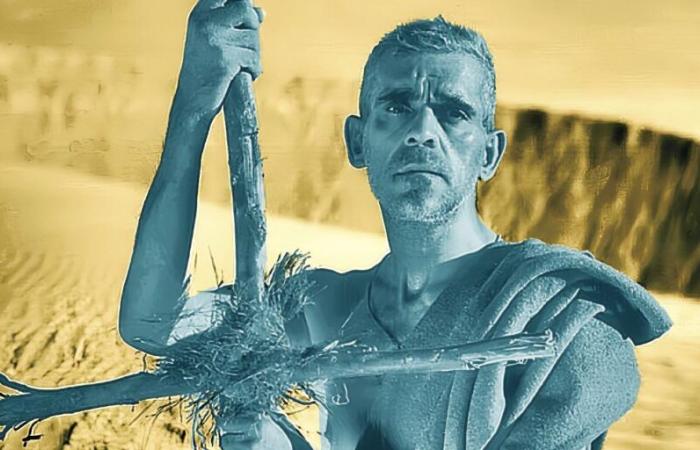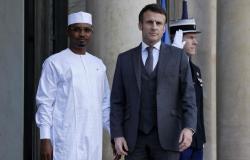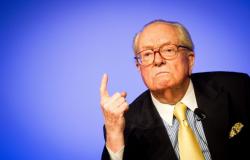
John Ford left a mark with the ingenuity with which he captured the rugged beauty of the American West and the equally complex human emotions within his characters. He brought this signature revolutionary visual poetry and deep humanism to other genres as well, harvesting a record four Best Director Academy Awards. A veteran himself, Ford’s war films, like They Were Expendable and The Battle of Midwayleaned into heroism and duty but also explored grittier and sobering realism.
In the 1934 pre-Code World War I film The Lost PatrolFord allows us to experience a precursor to his evolving artistic vision. The Lost Patrol is a tale of a claustrophobic survival nightmare for soldiers set in the Mesopotamian desert. Though largely overlooked compared to his later works, The Lost Patrol stands alongside The Grapes of Wrath as one of Ford’s most powerful explorations of the human condition. A remake of the 1929 silent film Lost (its footage is, ironically, reported as lost) from the original Philip MacDonald‘s novel Patrol, the 100% Rotten Tomatoes-rated The Lost Patrol has greatly influenced cinema, spawning other films as well as inspiring scenes in notable classics.
‘The Lost Patrol’ Is a Harrowing Depiction of War
The film’s premise is haunting. A small British patrol marches through the sprawling sand-dunned desert of Mesopotamia when their leader falls to the ground with a fatal shot to his lungs from unseen snipers. The second in command, the Sergeant, reveals to the group that he has not received any brief from the deceased leader and that they are, therefore, lost. What begins as an unfortunate event turns into a nightmare as the soldiers grapple with an unseen enemy. They find refuge in a deserted ruin near an oasis, which becomes both a blessing and a prison. Worse, their supplies and horses are stolen, and one by one, they fall victim to the gaping maw of the enemy snipers. As one character says in the film, they are in “the devil’s own backyard.”
Shot in the scorching heat of Yuma in Arizona and California, Ford transforms the vast Mesopotamia desert setting into a claustrophobic atmosphere that contrasts with the freedom often depicted in his Westerns. The film stars Victor McLaglenone of Ford’s regular collaborators, who shared the podium with the director at the Academy Awards a year after The Lost Patrol‘s release for their winning collaboration on The Informer, in which the actor played a disloyal friend during the Irish War of Independence. In The Lost PatrolMcLaglen portrays The Sergeant, a man unprepared for the unfamiliar responsibility of leading a besieged patrol. Also among the cast is Boris Karloff, the horror legend who starred in The Bride of Frankensteinarguably the greatest fantasy film ever made. He brings to the movie a religious madness that hauntingly unravels as things get thicker, culminating in his imagination of himself as Jesus reincarnated, stepping out with a cross to meet those who want to “crucify him.” The Lost Patrol explores the psychological toll of war on soldiers, with Ford peeking into his diverse characters and how war affects them. Some, like Karloff’s devout religious zealot Sanders, completely lose it, while others succumb to misguided optimism and attempts at heroic acts. Even though the Sergeant is at the center of the film, its ambitious exploration of other characters falls short of establishing deep connections with individual arcs in its brisk 70-minute runtime.
Related
John Ford Brought Courtroom Drama to the Wild West in This Gripping, Groundbreaking Legal Thriller
It was payback for John Ford.
‘The Lost Patrol’ Is an Anti-War Movie Whose Influence Is Understated
Ford’s The Lost Patrol is a scathing criticism of war’s futility. Not only do the film’s soldiers not know their mission, but their individual motivation for joining the war doesn’t align with their generals’ grand cause. There is one from an affluent background who sees the war as an opportunity for glory and a former vaudeville performer seeking redemption after crippling his wife. Ford further portrays the soldiers’ deaths as tragic and meaningless, without honor or glory. In his last scene, where the survivor laughs hysterically before marching away on horses with rescue soldiers in a wide shot against the vast desert landscape, he places the camera next to the graves of the fallen soldiers, which feels like he leaves the audience alongside the dead soldiers as helpless observers of the vanity of the marchers’ fatal mission.
While The Lost Patrol is not John Ford’s most celebrated work, it had a remarkable impact on cinema. It spawned films like Mikhail Romm‘s The Thirteen and the World War II movie Saharastarring Humphrey Bogartwhich share similar premises. Even the legendary Akira Kurosawa was awed by the shots of the swords of the dead soldiers at the film’s end, which he remodeled in his groundbreaking 1954 epic classic Seven Samurai. The Lost Patrol is John Ford’s most searing exploration of war’s futility, stripping the spectacle down to its raw, human cost. It’s less a tribute and more a harrowing lament for the countless lives sacrificed in battles often fought for reasons beyond their understanding. It is Ford at his most visceral.
The Lost Patrol
- Release Date
-
February 16, 1934
- Director
-
John Ford
- Cast
-
Boris Karloff
, Victor McLaglen
, Wallace Ford
, Reginald Denny
, J.M. Kerrigan
, Billy Bevan
, Alan Hale
, Brandon Hurst
, Douglas Walton
, Sammy Stein
, Paul Hanson
, Howard Wilson - Runtime
-
73 minutes
- Writers
-
Dudley Nichols
- Producers
-
Merian C. Cooper
Expand
The Lost Patrol is available to rent on Prime Video in the U.S.
RENT ON PRIME VIDEO





